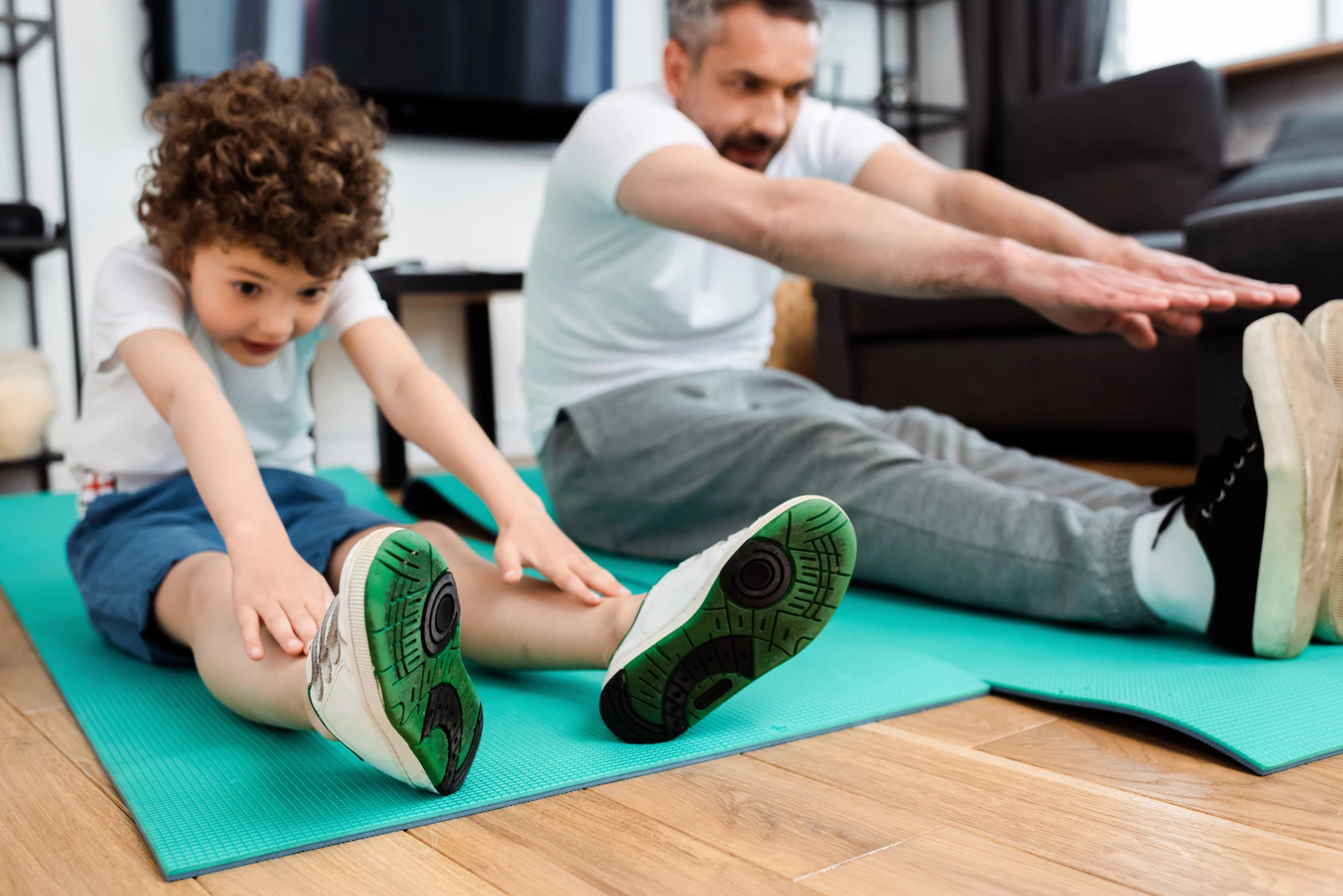If you are partaking in regular bouts of exercise, you can expect to experience a range of benefits, like the burning of excess fat, lower risk of heart trouble and a healthier state of mind. Recently, however, scientific studies have started to shine a light on how regular physical activity can benefit human health in more subtle ways, some of which you might not expect. Let's take a look at some interesting examples.
Enhanced learning from a single workout

The idea of going jogging to clear one's mind or de-stress after a tough day at work isn't new, but a big part of our growing knowledge around the benefits of exercise is a better understanding of its effects on cognition. In 2019, scientists at Oregon Health & Science University looked at a very specific example of this by zeroing in on the potential neuronal changes that can take place after a single exercise session.
The experiments were conducted on mice, which were subjected to an exercise session equivalent to a game of basketball. Just one hour later, the mice exhibited enhanced synaptic activity in the hippocampus, the part of the brain associated with memory and learning. The team also discovered heightened expression of a gene involved in synapse formation, which was found to promote new synaptic connections between neurons. The upshot? A single exercise session before a college class or important work meeting might just help you learn and retain important information. Just don't forget to squeeze in a shower.
Boosting brain plasticity through high-intensity training

Last year, we learned of another way exercise can improve cognitive function, with a group of researchers at the University of South Australia turning their attention to neuroplasticity. Similarly, this refers to the brain's ability to rewire neural connections as we move through life and experience new environments, form new memories and learn new skills.
The scientists set out to learn what types of exercise can most benefit the development and maintenance of these vital pathways, by subjecting health participants to a range of workouts. They used transcranial magnetic stimulation (TMS) to monitor the subjects' neuroplasticity throughout and found the most profound changes were after either 20 minutes of high-intensity interval training (HIIT) or 25 minutes of continuous aerobic exercise. So, if brain plasticity is the name of your game, then it might be time to turn up the tempo.
Fighting brain degeneration associated with dementia

A string of studies over the past couple of years have begun to shine a light on the relationship between physical activity and a slowing of the cognitive decline associated with dementia and Alzheimer's. This has included findings around how exercise can lessen the effects of mild cognitive impairment, induce a hormone that can protect against the disorders, and limit the risk of them developing in vulnerable adults.
One interesting example came in July of 2019, in which a team led by University of Exeter scientists examined the impacts of a healthy lifestyle on the genetic risk for Alzheimer's and dementia. This involved looking at nearly 200,000 adults that were given risk scores for developing dementia based on previous genetic studies, with the scientists then seeing how the probability of developing the disorder was impacted by four factors: smoking, physical activity, diet and alcohol consumption.
The scientists found that the likelihood could be reduced across the board by a healthy lifestyle, irresepective of genetics. Interestingly, however, a healthy lifestyle was found to reduce dementia cases by 32 percent in the high-risk genetic group. In this way, forming good habits around exercise, together with diet and smoking, may just offset the genetic risk of developing dementia and Alzheimer's.
Fending off anxiety and building a bigger brain

Research has shown how aerobic exercise can help alleviate chronic anxiety, but a recent study from scientists at the University of California, Riverside revealed how forming healthy habits early in life can help prevent it later in life, and even lead to larger brains as adults.
The scientists subjected young mice to unhealthy diets and gave them no access to exercise, and another group was given healthy diets and regular exercise, with the groups compared once the rodents reached sexual maturity. Despite both groups eating healthy diets from that point onwards, the mice that exercised and ate well during early life exhibited less anxious behavior as adults, and also featured increased muscle and brain mass.
Fighting blindness

Last July, we saw the first experimental evidence that exercise can directly slow or even prevent macular degeneration, one of the leading causes of blindness worldwide. The research from the University of Virginia involved one group of mice given an exercise wheel in a cage, and another group that was not.
Four weeks later, the scientists used lasers to induce vision loss in both sets of rodents, but found that in the group that had been exercising, eye damage was between 32 and 45 percent lower. Exercising the mice afterwards did nothing to reverse the damage, it was only in the mice with a history of exercise that the benefits around the preservation of vision were observed. While the study suggests small amounts of exercise can help prevent vision loss, further research is needed to understand the exact biological mechanisms behind it.
Boosting the immune system to kill cancer

Scientists have uncovered correlations between higher rates of physical exercise and lower rates of cancer, and in October last year we saw researchers drill down into the reasons why that might be. The researchers, from Sweden’s Karolinska Institutet, carried out experiments on animals, investigating how exercise could potentially enhance the abilities of T cells, the body's natural cancer-fighting immune cells.
These experiments revealed that exercise could indeed boost the cancer-killing potential of these T cells, by producing certain metabolites that enhance their function. This even proved true when T cells were harvested from exercising mice and implanted into untrained mice, which brought about reductions in tumor size.
Reconfiguring the gut microbiome

The collection of microorganisms living in our bellies, known as the gut microbiome, is increasingly being linked to all sorts of health outcomes, and scientists continue to unravel ways we might influence it for the better. Valuable new evidence on this front came in late 2017, when scientists at the University of Illinois published the first clear evidence that exercise alone can change the composition of gut bacteria, through experiments on mice and humans.
Fecal samples collected from both exercised and sedentary mice were implanted into germ-free sedentary mice, with the mice receiving gut bacteria from the active mice in turn displaying a significantly enhanced microbial diversity. The team's experiments on humans involved a group of lean and a group of sedentary, obese participants. All were placed on an exercise program, with their microbiomes sampled both before and after.
This brought some interesting revelations, with the lean group displaying a notable increase in fecal concentrations of short-chain fatty acids, though the obese group exhibited only a modest increase. These effects were short-lived, having declined just six weeks later. Together, these studies provide compelling evidence that exercise can alter the composition of the gut microbiome, but also raises interesting new pathways for research into how these effects could be influenced by a person's physical well-being at the outset.











